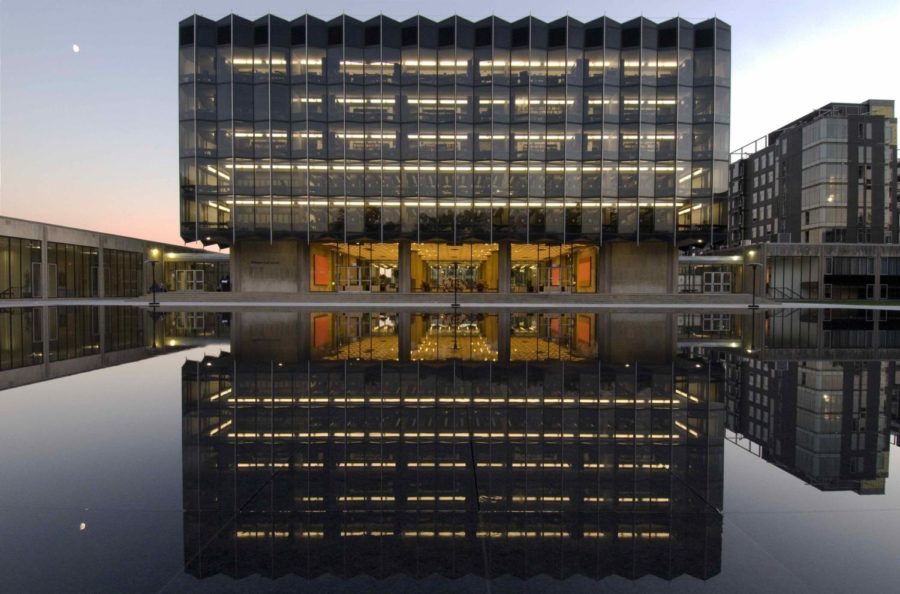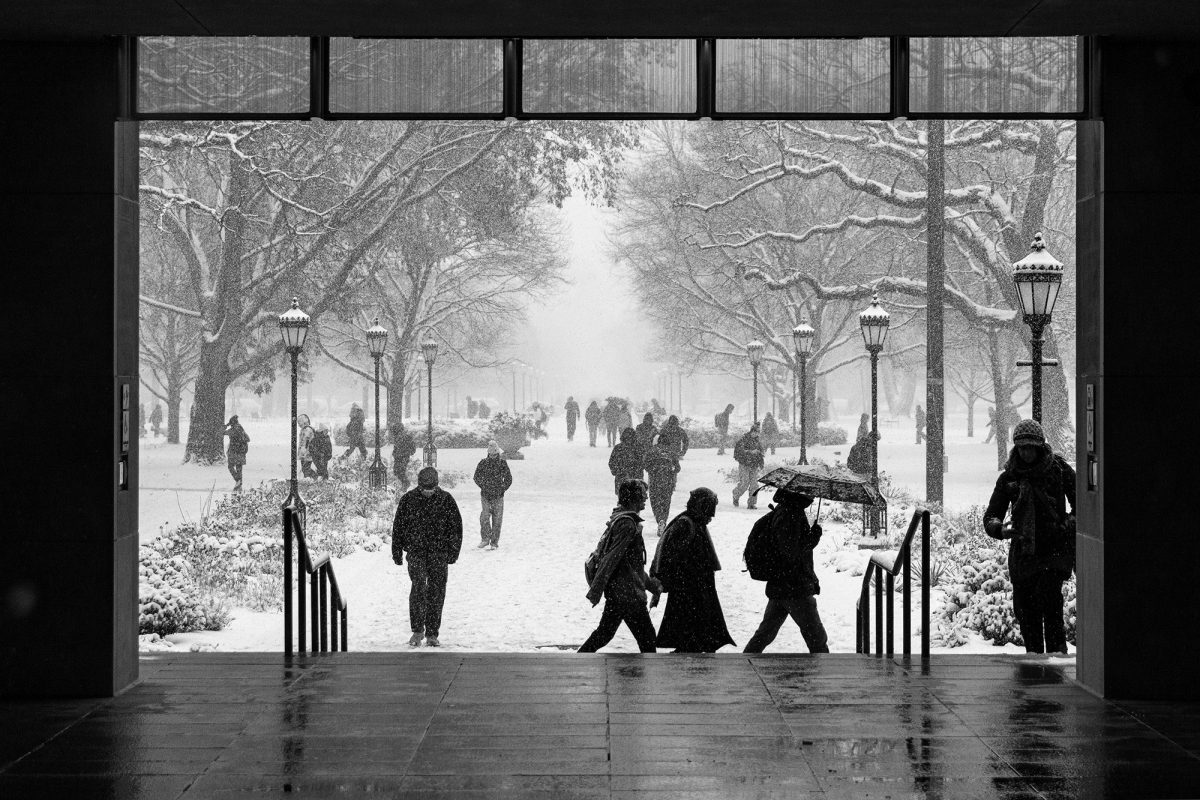A group of 19 students, scholars, and artists from the University of Puerto Rico are on campus this quarter as part of a series of University relief programs launched in response to damage caused by Hurricanes Irma and Maria, which hit the island in September.
The programs were created to provide applicants with both academic and creative resources and help the University establish solidarity with the University of Puerto Rico, as Agnes Lugo-Ortiz, associate professor in Latin American literature, told THE MAROON.
Nine third- and fourth-year undergraduates, four graduate students, four visiting scholars, and two artists were selected from a pool of applicants from the University of Puerto Rico to study in Chicago. They will be at the University for approximately three months before returning home.
The idea of helping Puerto Rico in the aftermath of Hurricane Irma and Maria was first introduced by Lugo-Ortiz and associate professor in comparative human development Micere Keels.
“The idea was: how from our position as academics, we could actually help the University of Puerto Rico,” Lugo-Ortiz told THE MAROON. “That hurricane came in the midst of the worst financial crisis in Puerto Rico history…. Right now, more Puerto Ricans live in the United States than on the island. In the month of the hurricane in December, more than 200,000 Puerto Ricans left the island.”
Lugo-Ortiz and Keels then worked with members of the Center for the Study of Race, Politics, and Culture (CSRPC) to send a proposal to the administration for a series of initiatives to provide relief to students, scholars, and artists in Puerto Rico. These members included associate director Tracye Matthews, associate professor in American history Adam Green, and political science professor Cathy Cohen. Vice provost of academic leadership, advancement, and diversity Melissa Gilliam also worked with the Center to logistically plan the program’s execution.
The program allows the University of Puerto Rico undergraduates to take classes with transferable credits for their majors. Meanwhile, each of the graduate students have been partnered with a University of Chicago faculty member to help them with their dissertation research. Similarly, professors from the University of Puerto Rico will conduct their research as faculty residents in collaboration with University of Chicago faculty member. Finally, artists will continue working on projects that were disrupted by the Hurricane. They will be hosted by the Arts and Public Life and CSPRC artist-in-residence program.
The University will pay for almost all of the visitors’ expenses, including basic amenities such as meals, lodging, and tuition, as well as round-trip airfare, transportation, health insurance, and the taxes students would otherwise have to pay on the waived costs of the relief program.
Furthermore, the University will also pay for the students’ spring tuition for the University of Puerto Rico that they would otherwise have to pay in addition to the costs of studying abroad.
Overall, this level of generosity sets the University’s relief programs apart from similar ones provided by other schools, including New York University, Cornell University, and state universities in Florida, New York, and Connecticut.
The program prioritized applicants who had Pell Grant funding or came from low-income families. In their applications, students were also asked to write a more personal statement on how studying at the University of Chicago would impact their family and community.
“I talked to many universities and one of the things they found was that when people came they had unexpected needs, coats and other things,” Gilliam said. “And so…because of all of those things, it meant we had to have money to cover every single aspect of what any of these people needed.”
University of Puerto Rico fourth-years Kevin Santiago and Yosef Gonzalez explained the extreme scarcity of campus resources in Puerto Rico. “There were power outages all the time,” Santiago said. “Food [was] in abundance and in scarcity at times. The prices of everything just went up…I do research…. And [at] my lab…we lost a lot of resources, enzymes, isolates, so it was depressing for me seeing the state of everything.”
This scarcity of resources, however, was a prevalent issue well before Hurricane Irma and Maria occurred. “Due to the economic crises that we were in, before the hurricane, there were a lot of cuts to the university,” Gonzalez said. “We had a really big strike before the hurricane. We were two months without any classes…. It was the students mostly, [because the] budget cuts [would] mean that the cost of tuition [would] rise a lot.”
During the application review process, the University of Chicago wanted to ensure they were accepting people who felt a strong duty to give back to the reconstruction and transformation of Puerto Rico, Lugo-Ortiz said. As such, students were additionally required to sign a memorandum of understanding that they must leave Chicago after spring quarter.
“If you look at what happened in [Puerto Rico] since the storm, the population of citizens in Puerto Rico has decreased,” Gilliam said. “And one of the biggest concerns has been around this college-educated population. A number of them have gone to Florida and to Miami. Others have gone to the New York area, so it is a real concern.”
“We are not a philanthropic beneficiary. This is solidarity,” Lugo-Ortiz said. “This is a solidarity that not only helps Puerto Rico but that also helps us in Chicago to define what kind of institution that we want to be. And what kind of projects and what kind of initiatives define our ethical and intellectual commitments.”
According to Lugo-Ortiz, the University’s relief program is acting as a blueprint for other institutions to emulate. As for whether this program will act as a precedent framework for future aid programs in response to natural disasters due to global warming, Gilliam said, “We don’t know…. Rather than us saying this is a one-off or this is a new thing, [we should say] we’re living in a very uncertain moment and each of these episodes is going to cause us to ask really deep and important questions.”







